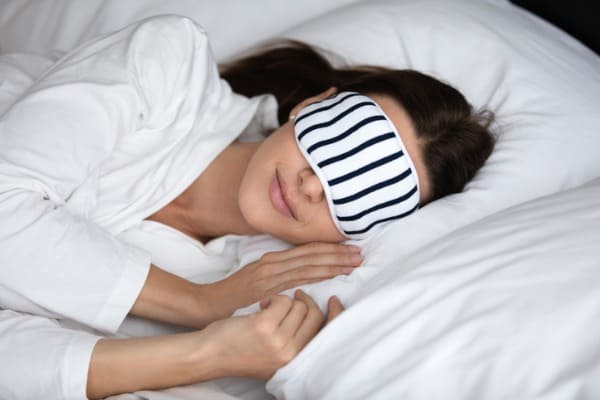
Good sleep is essential for our physical and mental health. However, many people experience trouble with their sleep and sleep deprivation.
Although there are many causes and types of sleeping problems, there are still fundamental steps you can do to get better sleep.
To help you improve the quality of your sleep, here are six methods you can try.
Quick Navigation
Avoid Consuming Caffeine And Anything That Interfere with Sleep
Caffeine has a lot of benefits, such as enhancing our focus, giving us energy, and keeping us alert and awake.
Caffeine is not just found in coffee. You can also find it in tea, chocolate, alcohol, soda, and many more.
Studies show that consuming caffeine six to eight hours before bedtime can cause stimulation in your nervous system and ruin your sleep quality.
You should limit caffeine intake, especially if you are sensitive to it. If you want to drink coffee or any beverages with caffeine, opt for a decaffeinated one.
Create a Sleep-Inducing Bedroom
Another best and easy tip to improve your sleep quality is to create a bedroom that has a comfortable and relaxing atmosphere.
While this is very obvious for some, many people completely overlooked this, resulting in difficulties in sleeping.
The first step in creating a sleep-inducing bedroom is to get an excellent mattress and pillow.
The experts at sleepycenter.net/best-luxury-pillows/ mentioned that you need pressure relief and edge support pillows and mattress for your spine to avoid back pains and body aches.
Along with the bedding, they feel a major role in keeping your bed feels inviting.
Also, ensure that there is no light and noise disruption. You can get an eye mask or earplugs to help you with this issue.
Lastly, change the bedroom temperature to a suitable one and establish pleasant aromas that can calm and ease you to sleep.
Establish a Pre-Bed Routine
Having a hard time falling asleep can be caused by what you are doing before your actual bedtime.
Observe your pre-bed routine and check if it helps you fall asleep quickly and effortlessly, or is it contributing to insomnia and sleep problems.
Wear snuggly sleepwear that is thermoregulating to help you feel relaxed and ready for good night’s sleep. What you wear to bed matters, especially if you tend to feel hot during your sleep or have sensitive skin.
Changing into soft and comfortable sleepwear will help you unwind before bedtime and sleep without interruptions. Establish good habits such as taking a bath, reading a book, and meditating.
It would be best to avoid activities that will stress you out, excite you, or aggravate you. Disconnect from your devices, lower the lights and wind down before bed.
Establishing a routine can take time, but this can certainly help you feel more relaxed and ready for bedtime.
Have A Consistent Sleep Schedule
Our body has a circadian rhythm function, it is the internal clock that’s in charge of regulating our cycle of alertness and sleepiness from light changes in our environment.
Irregular sleeping patterns such as sleeping in on weekends or waking up at different times can mess up your circadian rhythm and melatonin levels.
Sticking your sleep and waking times can help you have better long-term sleep quality.
You might struggle at first in trying to get in the habit of waking up and going to bed at the same time, but once you get into the routine, you’ll find it effortless to do it.
Avoid Eating Late and Heavy Meals
Eating late and heavy meals before sleep can disrupt your sleep. It can cause a lot of changes and problems to your body, such as indigestion.
If you are hungry before bedtime, you can have light snacks that won't affect your sleep, such as dairy or carbohydrates.
Another thing you should manage is your fluid intake.
Ensure that you balance between drinking enough fluid so you won't wake up thirsty and drinking too much that you'll be awakened because of the need to go to the toilet.
Take Naps Appropriately

Naps are beneficial, and it can be a part of some people’s day.
Long and irregular naps can confuse your internal clock and cause you problems with your sleep quality.
If you feel the need to have a nap, you should do it short and early.
However, the effects vary for everyone, and if you find yourself feeling energized and the naps are beneficial for you, you can continue to do so.
But, if your day time naps are causing you to be awake until late at night, then it is time to stop the habit.
These are the quick and easy steps you can take to improve the quality of your sleep.
Note that not everything will solve your sleeping problems right away, but it can certainly give you restful sleep over time.
However, if sleeping problems are persistent or worsen, you can consult your physician or sleep specialist to help you.
